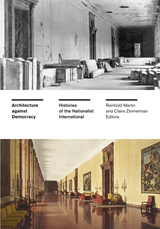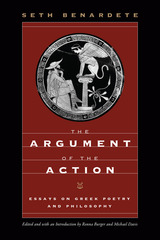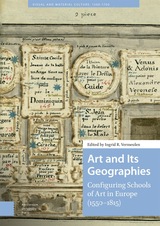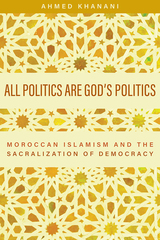
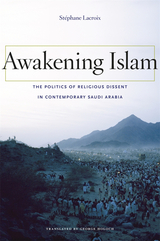
Amidst the roil of war and instability across the Middle East, the West is still searching for ways to understand the Islamic world. Stéphane Lacroix has now given us a penetrating look at the political dynamics of Saudi Arabia, one of the most opaque of Muslim countries and the place that gave birth to Osama bin Laden.
The result is a history that has never been told before. Lacroix shows how thousands of Islamist militants from Egypt, Syria, and other Middle Eastern countries, starting in the 1950s, escaped persecution and found refuge in Saudi Arabia, where they were integrated into the core of key state institutions and society. The transformative result was the Sahwa, or “Islamic Awakening,” an indigenous social movement that blended political activism with local religious ideas. Awakening Islam offers a pioneering analysis of how the movement became an essential element of Saudi society, and why, in the late 1980s, it turned against the very state that had nurtured it. Though the “Sahwa Insurrection” failed, it has bequeathed the world two very different, and very determined, heirs: the Islamo-liberals, who seek an Islamic constitutional monarchy through peaceful activism, and the neo-jihadis, supporters of bin Laden's violent campaign.
Awakening Islam is built upon seldom-seen documents in Arabic, numerous travels through the country, and interviews with an unprecedented number of Saudi Islamists across the ranks of today’s movement. The result affords unique insight into a closed culture and its potent brand of Islam, which has been exported across the world and which remains dangerously misunderstood.
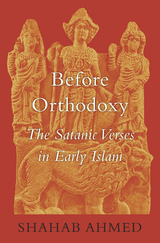
One of the most controversial episodes in the life of the Prophet Muhammad concerns an incident in which he allegedly mistook words suggested by Satan as divine revelation. Known as the Satanic verses, these praises to the pagan deities contradict the Islamic belief that Allah is one and absolute. Muslims today—of all sects—deny that the incident of the Satanic verses took place. But as Shahab Ahmed explains, Muslims did not always hold this view.
Before Orthodoxy wrestles with the question of how religions establish truth—especially religions such as Islam that lack a centralized authority to codify beliefs. Taking the now universally rejected incident of the Satanic verses as a case study in the formation of Islamic orthodoxy, Ahmed shows that early Muslims, circa 632 to 800 CE, held the exact opposite belief. For them, the Satanic verses were an established fact in the history of the Prophet. Ahmed offers a detailed account of the attitudes of Muslims to the Satanic verses in the first two centuries of Islam and traces the chains of transmission in the historical reports known as riwāyah.
Touching directly on the nature of Muhammad’s prophetic visions, the interpretation of the Satanic verses incident is a question of profound importance in Islam, one that plays a role in defining the limits of what Muslims may legitimately say and do—issues crucial to understanding the contemporary Islamic world.

As the nation tried to absorb the shock of the 9/11 attacks, Muslim Americans were caught up in an unprecedented wave of backlash violence. Public discussion revealed that widespread misunderstanding and misrepresentation of Islam persisted, despite the striking diversity of the Muslim community.
Letting the voices of 140 ordinary Muslim American men and women describe their experiences, Lori Peek's path-breaking book, Behind the Backlash presents moving accounts of prejudice and exclusion. Muslims speak of being subjected to harassment before the attacks, and recount the discrimination they encountered afterwards. Peek also explains the struggles of young Muslim adults to solidify their community and define their identity during a time of national crisis.
Behind the Backlash seeks to explain why blame and scapegoating occur after a catastrophe. Peek sets the twenty-first century experience of Muslim Americans, who were vilified and victimized, in the context of larger sociological and psychological processes. Peek’s book will be of interest to those in disaster research studies, sociology of religion, and race and ethnic relations.
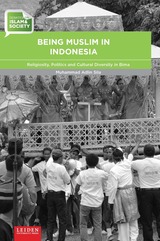
There are many ways of being Muslim in Indonesia, where more people practice Islam than anywhere else in the world. In Being Muslim in Indonesia, Muhammad Adlin Sila reveals the ways Muslims in one city constitute unique religious identities through ritual, political, and cultural practices. Emerging from diverse contexts, the traditionalist and reformist divide in Indonesian Islam must be understood through the sociopolitical lens of its practitioners—whether royalty, clerics, or laity.
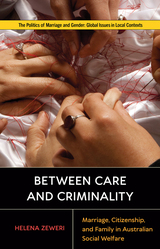

There are two major women’s movements in Morocco: the Islamists who hold shari’a as the platform for building a culture of women’s rights, and the feminists who use the United Nations’ framework to amend shari’a law. Between Feminism and Islam shows how the interactions of these movements over the past two decades have transformed the debates, the organization, and the strategies of each other.
In Between Feminism and Islam, Zakia Salime looks at three key movement moments: the 1992 feminist One Million Signature Campaign, the 2000 Islamist mass rally opposing the reform of family law, and the 2003 Casablanca attacks by a group of Islamist radicals. At the core of these moments are disputes over legitimacy, national identity, gender representations, and political negotiations for shaping state gender policies. Located at the intersection of feminism and Islam, these conflicts have led to the Islamization of feminists on the one hand and the feminization of Islamists on the other.
Documenting the synergistic relationship between these movements, Salime reveals how the boundaries of feminism and Islamism have been radically reconfigured. She offers a new conceptual framework for studying social movements, one that allows us to understand how Islamic feminism is influencing global debates on human rights.
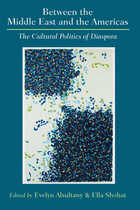
Between the Middle East and the Americas: The Cultural Politics of Diaspora traces the production and circulation of discourses about "the Middle East" across various cultural sites, against the historical backdrop of cross-Atlantic Mahjar flows. The book highlights the fraught and ambivalent situation of Arabs/Muslims in the Americas, where they are at once celebrated and demonized, integrated and marginalized, simultaneously invisible and spectacularly visible. The essays cover such themes as Arab hip-hop's transnational imaginary; gender/sexuality and the Muslim digital diaspora; patriotic drama and the media's War on Terror; the global negotiation of the Prophet Mohammad cartoons controversy; the Latin American paradoxes of Turcophobia/Turcophilia; the ambiguities of the bellydancing fad; French and American commodification of Rumi spirituality; the reception of Iranian memoirs as cultural domestication; and the politics of translation of Turkish novels into English. Taken together, the essays analyze the hegemonic discourses that position "the Middle East" as a consumable exoticized object, while also developing complex understandings of self-representation in literature, cinema/TV, music, performance, visual culture, and digital spaces. Charting the shifting significations of differing and overlapping forms of Orientalism, the volume addresses Middle Eastern diasporic practices from a transnational perspective that brings postcolonial cultural studies methods to bear on Arab American studies, Middle Eastern studies, and Latin American studies. Between the Middle East and the Americas disentangles the conventional separation of regions, moving beyond the binarist notion of "here" and "there" to imaginatively reveal the thorough interconnectedness of cultural geographies.
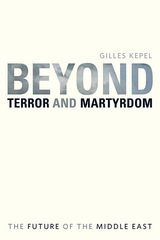
Since 2001, two dominant worldviews have clashed in the global arena: a neoconservative nightmare of an insidious Islamic terrorist threat to civilized life, and a jihadist myth of martyrdom through the slaughter of infidels. Across the airwaves and on the ground, an ill-defined and uncontrollable war has raged between these two opposing scenarios. Deadly images and threats—from the televised beheading of Western hostages to graphic pictures of torture at Abu Ghraib, from the destruction wrought by suicide bombers in London and Madrid to civilian deaths at the hands of American occupation forces in Iraq—have polarized populations on both sides of this divide.
Yet, as the noted Middle East scholar and commentator Gilles Kepel demonstrates, President Bush’s War on Terror masks a complex political agenda in the Middle East—enforcing democracy, accessing Iraqi oil, securing Israel, and seeking regime change in Iran. Osama bin Laden’s call for martyrs to rise up against the apostate and hasten the dawn of a universal Islamic state papers over a fractured, fragmented Islamic world that is waging war against itself.
Beyond Terror and Martyrdom sounds the alarm to the West and to Islam that both of these exhausted narratives are bankrupt—neither productive of democratic change in the Middle East nor of unity in Islam. Kepel urges us to escape the ideological quagmire of terrorism and martyrdom and explore the terms of a new and constructive dialogue between Islam and the West, one for which Europe, with its expanding and restless Muslim populations, may be the proving ground.
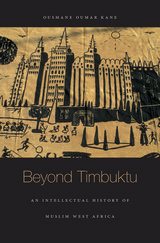
Renowned for its madrassas and archives of rare Arabic manuscripts, Timbuktu is famous as a great center of Muslim learning from Islam’s Golden Age. Yet Timbuktu is not unique. It was one among many scholarly centers to exist in precolonial West Africa. Beyond Timbuktu charts the rise of Muslim learning in West Africa from the beginning of Islam to the present day, examining the shifting contexts that have influenced the production and dissemination of Islamic knowledge—and shaped the sometimes conflicting interpretations of Muslim intellectuals—over the course of centuries.
Highlighting the significant breadth and versatility of the Muslim intellectual tradition in sub-Saharan Africa, Ousmane Kane corrects lingering misconceptions in both the West and the Middle East that Africa’s Muslim heritage represents a minor thread in Islam’s larger tapestry. West African Muslims have never been isolated. To the contrary, their connection with Muslims worldwide is robust and longstanding. The Sahara was not an insuperable barrier but a bridge that allowed the Arabo-Berbers of the North to sustain relations with West African Muslims through trade, diplomacy, and intellectual and spiritual exchange.
The West African tradition of Islamic learning has grown in tandem with the spread of Arabic literacy, making Arabic the most widely spoken language in Africa today. In the postcolonial period, dramatic transformations in West African education, together with the rise of media technologies and the ever-evolving public roles of African Muslim intellectuals, continue to spread knowledge of Islam throughout the continent.

The Contemporary Arab Reader on Political Islam brings together the writings of highly influential figures in the field of Islamism in the contemporary Arab world, many of whose writings have never been available before in English.
Addressing the key issues such as human rights, civil society, secularism, globalisation and ummah, and the impact of the West on the modern Arab world, this is the perfect starting point for students and academics looking to understand 'Political Islam' in contemporary Arab and Muslim societies.
The contributors include such important Islamist thinkers and activists as Abdullah Azzam, central to the spread of Islamism in Afghanistan, Sayyid Muhammad Hussain Fadlallah, a major Shiite figure in contemporary Lebanon and Ahmad Bin Yousuf, a political advisor to Akram Haniyya in Gaza.
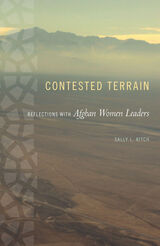
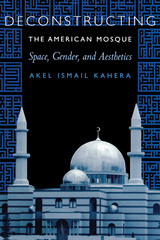
From the avant-garde design of the Islamic Cultural Center in New York City to the simplicity of the Dar al-Islam Mosque in Abiquiu, New Mexico, the American mosque takes many forms of visual and architectural expression. The absence of a single, authoritative model and the plurality of design nuances reflect the heterogeneity of the American Muslim community itself, which embodies a whole spectrum of ethnic origins, traditions, and religious practices.
In this book, Akel Ismail Kahera explores the history and theory of Muslim religious aesthetics in the United States since 1950. Using a notion of deconstruction based on the concepts of "jamal" (beauty), "subject," and "object" found in the writings of Ibn Arabi (d. 1240), he interprets the forms and meanings of several American mosques from across the country. His analysis contributes to three debates within the formulation of a Muslim aesthetics in North America—first, over the meaning, purpose, and function of visual religious expression; second, over the spatial and visual affinities between American and non-American mosques, including the Prophet's mosque at Madinah, Arabia; and third, over the relevance of culture, place, and identity to the making of contemporary religious expression in North America.
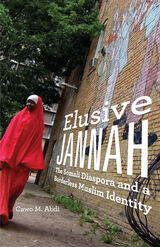
As a Somali working since high school in the United Arab Emirates, Osman considers himself “blessed” to be in a Muslim country, though citizenship, with the security it offers, remains elusive. For Ardo, smuggled out of Somalia to join her husband in South Africa, insecurities are of a more immediate, physical kind, and her economic prospects and legal status are more uncertain. Adam, in the United States—a destination often imagined as an earthly Eden, or jannah, by so many of his compatriots—now sees heaven in a return to Somalia.
The stories of these three people are among the many that emerge from mass migration triggered by the political turmoil and civil war plaguing Somalia since 1988. And they are among the diverse collection presented in eloquent detail in Elusive Jannah, a remarkable portrait of the very different experiences of Somali migrants in the UAE, South Africa, and the United States. Somalis in the UAE, a relatively closed Muslim nation, are a minority within a large South Asian population of labor migrants. In South Africa, they are part of a highly racialized and segregated postapartheid society. In the United States they find themselves in a welfare state with its own racial, socioeconomic, and political tensions. A comparison of Somali settlements in these three locations clearly reveals the importance of immigration policies in the migrant experience.
Cawo M. Abdi’s nuanced analysis demonstrates that a full understanding of successful migration and integration must go beyond legal, economic, and physical security to encompass a sense of religious, cultural, and social belonging. Her timely book underscores the sociopolitical forces shaping the Somali diaspora, as well as the roles of the nation-state, the war on terror, and globalization in both constraining and enabling their search for citizenship and security.

As southern Lebanon becomes the latest battleground for Islamist warriors, Everyday Jihad plunges us into the sprawling, heavily populated Palestinian refugee camp at Ain al-Helweh, which in the early 1990s became a site for militant Sunni Islamists. A place of refuge for Arabs hunted down in their countries of origin and a recruitment ground for young disenfranchised Palestinians, the camp--where sheikhs began actively recruiting for jihad--situated itself in the global geography of radical Islam.
With pioneering fieldwork, Bernard Rougier documents how Sunni fundamentalists, combining a literal interpretation of sacred texts with a militant interpretation of jihad, took root in this Palestinian milieu. By staying very close to the religious actors, their discourse, perceptions, and means of persuasion, Rougier helps us to understand how radical religious allegiances overcome traditional nationalist sentiment and how jihadist networks grab hold in communities marked by unemployment, poverty, and despair.
With the emergence of Hezbollah, the Shiite political party and guerrilla army, at the forefront of Lebanese and regional politics, relations with the Palestinians will be decisive. The Palestinian camps of Lebanon, whose disarmament is called for by the international community, constitute a contentious arena for a multitude of players: Syria and Iran, Hezbollah and the Palestinian Authority, and Bin Laden and the late Zarqawi. Witnessing everyday jihad in their midst offers readers a rare glimpse into a microcosm of the religious, sectarian, and secular struggles for the political identity of the Middle East today.
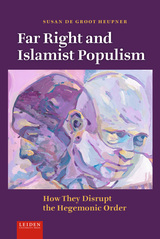
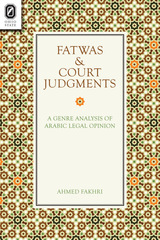
The differences between the two genres stem from elements of their socio-cultural context, such as the role relations of the participants and the characteristics of the institutions to which the genres belong. Moving beyond these contexts, Fatwas and Court Judgments reveals generic practices that have broad implications for understanding various aspects of wider Arab culture, including the tension between modern secular ideologies and traditional religious beliefs, the male-dominated access to discourse, and the prevalence of utilitarian attitudes exhibited in “fatwa shopping.”
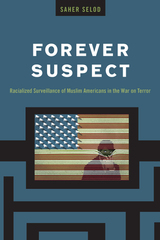
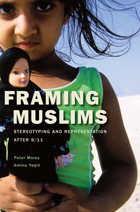
Can Muslims ever fully be citizens of the West? Can the values of Islam ever be brought into accord with the individual freedoms central to the civic identity of Western nations? Not if you believe what you see on TV. Whether the bearded fanatic, the veiled, oppressed female, or the shadowy terrorist plotting our destruction, crude stereotypes permeate public representations of Muslims in the United States and western Europe. But these "Muslims" are caricatures—distorted abstractions, wrought in the most garish colors, that serve to reduce the diversity and complexity of the Muslim world to a set of fixed objects suitable for sound bites and not much else.
In Framing Muslims: Stereotyping and Representation after 9/11, Peter Morey and Amina Yaqin dissect the ways in which stereotypes depicting Muslims as an inherently problematic presence in the West are constructed, deployed, and circulated in the public imagination, producing an immense gulf between representation and a considerably more complex reality. Crucially, they show that these stereotypes are not solely the province of crude-minded demagogues and their tabloid megaphones, but multiply as well from the lips of supposedly progressive elites, even those who presume to speak "from within," on Muslims' behalf. Based on nuanced analyses of cultural representations in both the United States and the UK, the authors draw our attention to a circulation of stereotypes about Muslims that sometimes globalizes local biases and, at other times, brings national differences into sharper relief.


This edited volume explores the dynamic relationship between the Friday mosque and the Islamic city, addressing the traditional topics through a fresh new lens and offering a critical examination of each case study in its own spatial, urban, and socio-cultural context. While these two well-known themes—concepts that once defined the field—have been widely studied by historians of Islamic architecture and urbanism, this compilation specifically addresses the functional and spatial ambiguity or liminality between these spaces.
Instead of addressing the Friday mosque as the central signifier of the Islamic city, this collection provides evidence that there was (and continues to be) variety in the way architectural borders became fluid in and around Friday mosques across the Islamic world, from Cordoba to Jerusalem and from London to Lahore. By historicizing different cases and exploring the way human agency, through ritual and politics, shaped the physical and social fabric of the city, this volume challenges the generalizing and reductionist tendencies in earlier scholarship.
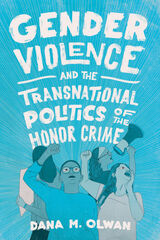
More specifically, Olwan traces the term’s appearance in public and popular works that allow for its continued mass acceptance and circulation—from media depictions in Canada and beyond, to how it is taken up in national registers about migration and belonging in the US, to activism in Palestine that reveal the fault lines between activist and academic critiques of the honor crime, and finally to feminist efforts in Jordan and the wider Middle East to confront legal codes used to sanction gender-related violence. Through these cases, Olwan demonstrates how the honor crime functions as a signifier that governs and manages populations and how its meanings travel and circulate across and between separate and interconnected circuits of power and knowledge.

This book is a study of the historical record of Muslim women’s property rights and equity. Based on Islamic court documents of fifteenth-century Granada—documents that show a high degree of women’s involvement—the book examines women’s legal entitlements to acquire property as well as the social and economic significance of these rights to Granada’s female population and, by extension, to women in other Islamic societies.
The microhistory of women’s property rights is placed in a comparative historical, social, and economic context and is examined using a theoretical framework that suggests how this book’s conclusions might coexist with the Islamic feminist discourse on the law as a patriarchal system, serving to highlight both the uniqueness and the limitations of the Islamic case. The specifics presented in the case studies reveal the broader structures, constructs, rules, conditions, factors, and paradigms that shaped women’s property rights under Islamic law. They show that women’s property rights were more than just part of a legal system; they were the product of a legal philosophy and a pervasive paradigm that made property ownership a normal construct of the Muslim woman’s legal persona and a norm of her existence.

The rules may differ from country to country, but the dating game is a universal constant.
After years of searching for Mr. Right in living-room meetings arranged by family or friends, Ghada Abdel Aal, a young Egyptian professional, decided to take to the blogosphere to share her experiences and vent her frustrations at being young, single, and female in Egypt. Her blog, I Want to Get Married!, quickly became a hit with both men and women in the Arab world. With a keen sense of humor and biting social commentary, Abdel Aal recounts in painful detail her adventures with failed proposals and unacceptable suitors. There's Mr. Precious, who storms out during their first meeting when he feels his favorite athlete has been slighted, and another suitor who robs her in broad daylight, to name just a few of the characters she runs across in her pursuit of wedded bliss.
I Want to Get Married! has since become a best-selling book in Egypt and the inspiration for a television series. This witty look at dating challenges skewed representations of the Middle East and presents a realistic picture of what it means to be a single young woman in the Arab world, where, like elsewhere, a good man can be hard to find.
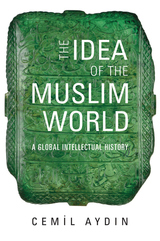
“Superb… A tour de force.”
—Ebrahim Moosa
“Provocative… Aydin ranges over the centuries to show the relative novelty of the idea of a Muslim world and the relentless efforts to exploit that idea for political ends.”
—Washington Post
When President Obama visited Cairo to address Muslims worldwide, he followed in the footsteps of countless politicians who have taken the existence of a unified global Muslim community for granted. But as Cemil Aydin explains in this provocative history, it is a misconception to think that the world’s 1.5 billion Muslims constitute a single entity. How did this belief arise, and why is it so widespread? The Idea of the Muslim World considers its origins and reveals the consequences of its enduring allure.
“Much of today’s media commentary traces current trouble in the Middle East back to the emergence of ‘artificial’ nation states after the fall of the Ottoman Empire… According to this narrative…today’s unrest is simply a belated product of that mistake. The Idea of the Muslim World is a bracing rebuke to such simplistic conclusions.”
—Times Literary Supplement
“It is here that Aydin’s book proves so valuable: by revealing how the racial, civilizational, and political biases that emerged in the nineteenth century shape contemporary visions of the Muslim world.”
—Foreign Affairs
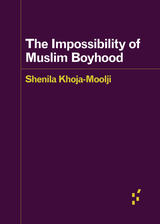
How the construction of Muslim boys as proto-terrorists is integral to the story of American racial capitalism
How do we understand an incident where a five-year-old Muslim boy arrives at Dulles airport and is preemptively detained as a “threat”? To answer that question, Shenila Khoja-Moolji examines American public culture, arguing that Muslim boyhood has been invented as a threat within an ideology that seeks to predict future terrorism. Muslim boyhood bridges actual past terrorism and possible future events, justifying preemptive enclosure, surveillance, and punishment. Even in the occasional reframing of individual Muslim boys as innocent, Khoja-Moolji identifies a pattern of commodity antiracism, through which elites buy public goodwill but leave intact the collective anti-Muslim notion that fuels an expanding carceral and security state. Framing Muslim boyhood as a heuristic device, she turns to a discussion of Hindutva ideology in India to show how Muslim boyhood may be resituated in global contexts.
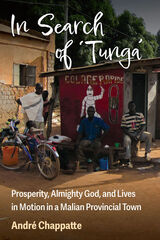
In the context of the current global war on terrorism, most studies of Muslim life have focused on the politics of piety of reformist movements, their leaders, and members. By contrast, In Search of “Tunga” takes a perspective from below. It opens piety up to “simply Muslims,” although the religious elites have always claimed authority and legitimacy over piety. Is piety an exclusive field of experiences for those who claim to strive for it? What does piety involve for the majority of Muslims, the non-elite and unaffiliated Muslims? This volume “democratizes” piety by documenting its practice as going beyond sharply defined religious affiliations and Islamic scholarship, and by showing it is both alive and normative, existential and prescriptive. As opposed to studies that build on the classic historical connections between the Maghreb and the Sahel, the southbound migration from the Sahel documented in this book stresses the overlooked historical connections between the southern shores of the Sahara and the lands south of those shores. It demonstrates how the Malian savanna, this former buffer-zone between ancient Mande kingdoms and thereafter remote areas of French Sudan, is increasingly becoming central in today’s Sahel contexts of desiccation and insecurity.
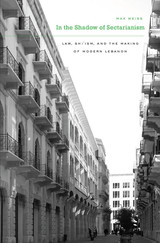
Contrary to the conventional wisdom that sectarianism is intrinsically linked to violence, bloodshed, or social disharmony, Max Weiss uncovers the complex roots of Shiʿi sectarianism in twentieth-century Lebanon.
The template for conflicted relations between the Lebanese state and Shiʿi society arose under French Mandate rule through a process of gradual transformation, long before the political mobilization of the Shiʿi community under the charismatic Imam Musa al-Sadr and his Movement of the Deprived, and decades before the radicalization linked to Hizballah. Throughout the period, the Shiʿi community was buffeted by crosscutting political, religious, and ideological currents: transnational affiliations versus local concerns; the competing pull of Arab nationalism and Lebanese nationalism; loyalty to Jabal ʿAmil, the cultural heartland of Shiʿi Lebanon; and the modernization of religious and juridical traditions.
Uncoupling the beginnings of modern Shiʿi collective identity from the rise of political Shiʿism, Weiss transforms our understanding of the nature of sectarianism and shows why in Lebanon it has been both so productive and so destructive at the same time.
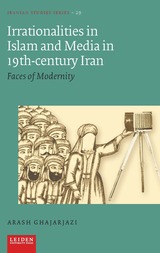
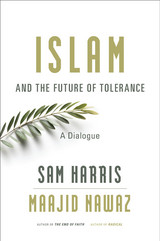
“A civil but honest dialogue…As illuminating as it is fascinating.”
—Ayaan Hirsi Ali
Is Islam a religion of peace or war? Is it amenable to reform? Why do so many Muslims seem to be drawn to extremism? And what do words like jihadism and fundamentalism really mean? In a world riven by misunderstanding and violence, Sam Harris—a famous atheist—and Maajid Nawaz—a former radical—demonstrate how two people with very different religious views can find common ground and invite you to join in an urgently needed conversation.
“How refreshing to read an honest yet affectionate exchange between the Islamist-turned-liberal-Muslim Maajid Nawaz and the neuroscientist who advocates mindful atheism, Sam Harris…Their back-and-forth clarifies multiple confusions that plague the public conversation about Islam.”
—Irshad Manji, New York Times Book Review
“It is sadly uncommon, in any era, to find dialogue based on facts and reason—but even more rarely are Muslim and non-Muslim intellectuals able to maintain critical distance on broad questions about Islam. Which makes Islam and the Future of Tolerance something of a unicorn…Most conversations about religion are marked by the inability of either side to listen, but here, at last, is a proper debate.”
—New Statesman
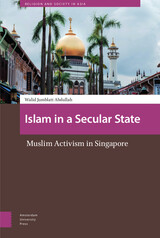

In the hysteria surrounding Political Islam, it is difficult to find analysis that doesn't feel the need to justify the existence of Islamic leaders or react to the West's fear of 'extremists'. In Islamic Activists, Deina Ali Abdelkader shows us what Islamic leaders and activists believe and what they think about just governance.
Explaining and comparing Islamist ideas, including those about leadership, justice and minority rights, Abdelkader explains how these have been represented in the writings of important historical and contemporary Islamists. In doing so, Abdelkader reveals that democracy is not the sole preserve of those who support Enlightenment values, offering the reader a chance to understand the populist non-violent side of Islamic activism. This includes an examination of the ideas of the leaders of the populist Islamist movements in Egypt, Tunisia and Morocco.


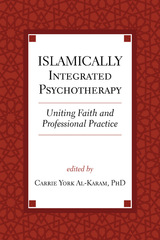
Integrating the Islamic faith with modern psychotherapy is at the forefront of the spiritually integrated psychotherapy movement. To bring this work to wider attention and to promote its continuation, Dr. Carrie York Al-Karam has brought together the present volume of nine essays, each of which is written by a Muslim clinician who practices Islamically integrated psychotherapy (IIP)—a modern approach that unites the teachings, principles, and interventions of the faith with Western therapeutic approaches.
As delineated in the Introduction, IIP has emerged from a variety of domains including the psychology of religion and spirituality, multicultural psychology and counseling, transpersonal psychology, Muslim Mental Health, and Islamic Psychology. The individual chapters then describe a variety of ways IIP is practiced by Muslim clinicians in their service provision with Muslim clients.
The contributors discuss a wide range of topics, such as how Islam can be viewed as a system for psychological wellbeing, or a “science of the soul”; what marital counseling can look like from an Islamically-integrated perspective; Prophet Mohammed as a psycho-spiritual exemplar in a new approach called The HEART Method; the use of Quranic stories in family therapy; as well as using Islamic teachings when working with Muslim children and adolescents.
A description of the various approaches is supplemented with discussions of their theoretical underpinnings as well as research-based recommendations for advancing clinical application. What emerges is a vital resource for Muslim and non-Muslim clinicians alike as well as the lay Muslim reader wanting to know more about how the Islamic faith and psychotherapy are engaging with each other in a modern clinical context.
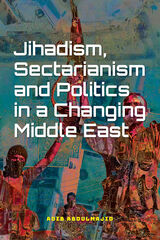
The emergence and growth of sectarian Islamist militant organizations, whether Sunni or Shia, is deemed to be the fruit of the emerging radical interpretations of the concept of jihad, and the evolution of Islamism in general. The main objective of this book is to help the reader understand the complex religio-political scene in today’s Middle East and the ideological principles and agendas of influential movements, whose beliefs and actions constitute a serious threat to cultural diversity in the region. It addresses the doctrinal tenets associated with the emergence of influential Islamist organizations and the challenges encountered by the culturally diverse populations that surround them. This book also delves into the historical events that have shaped the Middle East as we know it today. It further examines the key factors behind the rise of the most influential sectarian-guided, jihadi-based extremist groups in the recent years

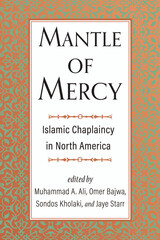
Working in a variety of settings—including hospitals, prisons, universities, and the armed forces—Muslim chaplains encounter unique challenges on a daily basis, requiring them to call upon the resources of their Islamic faith with wisdom and tenderness. The contributors to this volume explore these circumstances vividly and honestly. Their personal stories are instructive of how Islamic principles can be employed with spiritual insight to bring strength and comfort to the sick and suffering.
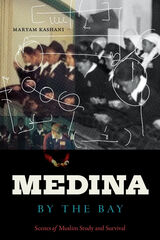
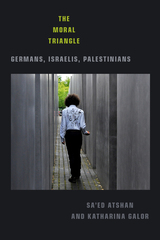
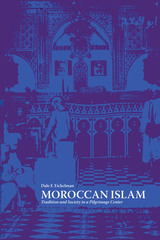
This book is one of the first comprehensive studies of Islam as locally understood in the Middle East. Specifically, it is concerned with the prevalent North African belief that certain men, called marabouts, have a special relation to God that enables them to serve as intermediaries and to influence the well-being of their clients and kin. Dale F. Eickelman examines the Moroccan pilgrimage center of Boujad and unpublished Moroccan and French archival materials related to it to show how popular Islam has been modified by its adherents to accommodate new social and economic realities. In the course of his analysis he demonstrates the necessary interrelationship between social history and the anthropological study of symbolism.
Eickelman begins with an outline of the early development of Islam in Morocco, emphasizing the "maraboutic crisis" of the fourteenth through sixteenth centuries. He also examines the history and social characteristics of the Sherqawi religious lodge, on which the study focuses, in preprotectorate Morocco. In the central portion of the book, he analyzes the economic activities and social institutions of Boujad and its rural hinterland, as well as some basic assumptions the townspeople and tribesmen make about the social order. Finally, there is an intensive discussion of maraboutism as a phenomenon and the changing local character of Islam in Morocco.
In focusing on the "folk" level of Islam, rather than on "high culture" tradition, the author has made possible a more general interpretation of Moroccan society that is in contrast with earlier accounts that postulated a marked discontinuity between tribe and town, past and present.
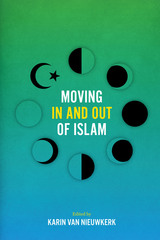
Embracing a new religion, or leaving one’s faith, usually constitutes a significant milestone in a person’s life. While a number of scholars have examined the reasons why people convert to Islam, few have investigated why people leave the faith and what the consequences are for doing so. Taking a holistic approach to conversion and deconversion, Moving In and Out of Islam explores the experiences of people who have come into the faith along with those who have chosen to leave it—including some individuals who have both moved into and out of Islam over the course of their lives.
Sixteen empirical case studies trace the processes of moving in or out of Islam in Western and Central Europe, the United States, Canada, and the Middle East. Going beyond fixed notions of conversion or apostasy, the contributors focus on the ambiguity, doubts, and nonlinear trajectories of both moving in and out of Islam. They show how people shifting in either direction have to learn or unlearn habits and change their styles of clothing, dietary restrictions, and ways of interacting with their communities. They also look at how communities react to both converts to the religion and converts out of it, including controversies over the death penalty for apostates. The contributors cover the political aspects of conversion as well, including debates on radicalization in the era of the “war on terror” and the role of moderate Islam in conversions.
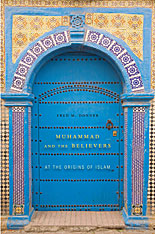
The origins of Islam have been the subject of increasing controversy in recent years. The traditional view, which presents Islam as a self-consciously distinct religion tied to the life and revelations of the prophet Muhammad in western Arabia, has since the 1970s been challenged by historians engaged in critical study of the Muslim sources.
In Muhammad and the Believers, the eminent historian Fred Donner offers a lucid and original vision of how Islam first evolved. He argues that the origins of Islam lie in what we may call the "Believers' movement" begun by the prophet Muhammad—a movement of religious reform emphasizing strict monotheism and righteous behavior in conformity with God's revealed law. The Believers' movement thus included righteous Christians and Jews in its early years, because like the Qur'anic Believers, Christians and Jews were monotheists and agreed to live righteously in obedience to their revealed law. The conviction that Muslims constituted a separate religious community, utterly distinct from Christians and Jews, emerged a century later, when the leaders of the Believers' movement decided that only those who saw the Qur'an as the final revelation of the One God and Muhammad as the final prophet, qualified as Believers. This separated them decisively from monotheists who adhered to the Gospels or Torah.
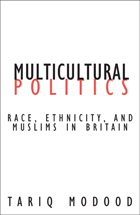
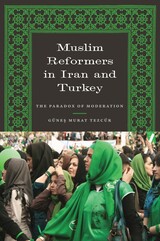
Moderation theory describes the process through which radical political actors develop commitments to electoral competition, political pluralism, human rights, and rule of law and come to prefer negotiation, reconciliation, and electoral politics over provocation, confrontation, and contentious action. Revisiting this theory through an examination of two of the most prominent moderate Islamic political forces in recent history, Muslim Reformers in Iran and Turkey analyzes the gains made and methods implemented by the Reform Front in the Islamic Republic of Iran and the Justice and Development Party in Turkey.
Both of these groups represent Muslim reformers who came into continual conflict with unelected adversaries who attempted to block their reformist agendas. Based on extensive field research in both locales, Muslim Reformers in Iran and Turkey argues that behavioral moderation as practiced by these groups may actually inhibit democratic progress. Political scientist Güneş Murat Tezcür observes that the ability to implement conciliatory tactics, organize electoral parties, and make political compromises impeded democracy when pursued by the Reform Front and the Justice and Development Party. Challenging conventional wisdom, Tezcür's findings have broad implications for the dynamics of democratic progress.

The roster of Muslim superheroes in the comic book medium has grown over the years, as has the complexity of their depictions. Muslim Superheroes tracks the initial absence, reluctant inclusion, tokenistic employment, and then nuanced scripting of Islamic protagonists in the American superhero comic book market and beyond.
This scholarly anthology investigates the ways in which Muslim superhero characters fulfill, counter, or complicate Western stereotypes and navigate popular audience expectations globally, under the looming threat of Islamophobia. The contributors consider assumptions buried in the very notion of a character who is both a superhero and a Muslim with an interdisciplinary and international focus characteristic of both Islamic studies and comics studies scholarship. Muslim Superheroes investigates both intranational American racial formation and international American geopolitics, juxtaposed with social developments outside U.S. borders.
Providing unprecedented depth to the study of Muslim superheroes, this collection analyzes, through a series of close readings and comparative studies, how Muslim and non-Muslim comics creators and critics have produced, reproduced, and represented different conceptions of Islam and Muslimness embodied in the genre characters.

The twenty-first century has been a volatile period for American Muslims. Anti-Muslim hate crimes peaked after September 11, 2001, then increased again dramatically in parallel with the candidacy and presidency of Donald Trump. Yet American Muslims now have unprecedented avenues of influence in US politics. Muslims and US Politics Today explores the various representations of Muslims in American political and civic life, the myriad ways American Muslims are affected by politics, and how American Muslims are engaging political life as individuals and communities.
This integrative volume reaches back to presidential elections after 9/11 (Edward E. Curtis IV), further back to Iranian immigrants after the Iranian Revolution (Mohsen Mostafavi Mobasher), and back even to fundamentals of religious freedom in the United States (Kambiz GhaneaBassiri; Mucahit Bilici). Aspects of anti-Muslim politics and marginalization, as well as mobilization and activism, are covered in essays by Salah D. Hassan, Evelyn Alsultany, Juliane Hammer, Alisa Perkins, and Sally Howell. In a final section on rethinking Muslim politics, Donna Auston and Sylvia Chan-Malik dialogue on Black American Islam and Junaid Rana looks broadly to a global Muslim left. In this critically-timed volume, editor Mohammad Hassan Khalil has drawn together leading scholars to provide a deep look at the rich political history and future of American Muslims.
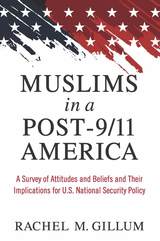
Muslims in a Post-9/11 America examines how public fears about Muslims in the United States compare with the reality of American Muslims’ attitudes on a range of relevant issues. While most research on Muslim Americans focuses on Arab Muslims, a quarter of the Muslim American population, Rachel Gillum includes perspectives of Muslims from various ethnic and national communities—from African Americans to those of Pakistani, Iranian, or Eastern European descent. Using interviews and one of the largest nationwide surveys of Muslim Americans to date, Gillum examines more than three generations of Muslim American immigrants to assess how segments of the Muslim American community are integrating into the U.S. social fabric, and how they respond to post-9/11 policy changes. Gillum’s findings challenge perceptions of Muslims as a homogeneous, isolated, un-American, and potentially violent segment of the U.S. population.
Despite these realities, negative political rhetoric around Muslim Americans persists. The findings suggest that the policies designed to keep America safe from terrorist attacks may have eroded one of law enforcement’s greatest assets in the fight against violent extremism—a relationship of trust and goodwill between the Muslim American community and the U.S. government. Gillum argues for policies and law enforcement tactics that will bring nuanced understandings of this diverse category of Americans and build trust, rather than alienate Muslim communities.
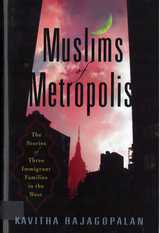
The Muslim population globally is comprised of hundreds of ethnic, linguistic, and religious sub-communities. Yet, more often than not, the public conflates these diverse and unrelated communities, branding Muslim immigrants as a single, suspicious, and culturally antagonistic group of people. Generalizations like these have compromised many Muslim immigrants' sense of belonging and acceptance in places where they have lived, in some cases, for three or four generations.
In Muslims of Metropolis, Kavitha Rajagopalan takes a much needed step in personalizing and humanizing our understanding of the Muslim diaspora. Tracing the stories of three very different families-a Palestinian family moving to London, a Kurdish family moving to Berlin, and a Bangladeshi family moving to New York-she reveals a level of complexity and nuance that is seldom considered. Through their voices and in their words, Rajagopalan describes what prompted these families to leave home, what challenges they faced in adjusting to their new lives, and how they came to view their place in society. Interviews with community leaders, social justice organizations, and with academics and political experts in each of the countries add additional layers of insight to how broad political issues, like nationalist conflict, immigration reform, and antiterrorism strategies affect the lives of Muslims who have migrated in search of economic stability and personal happiness.
Although recent thinking about immigration policy in the United States and Europe emphasizes the importance of long-term integration, a global attitude that continues to sensationalize divisions between Muslim and other communities thwarts this possibility. Integration cannot occur with policy solutions alone-people must feel that they belong to a larger society. Whether read as simple stories or broader narratives, the voices in this revealing book are among the many speaking against generalization, prejudice, and fear that has so far surrounded Muslims living in the West.
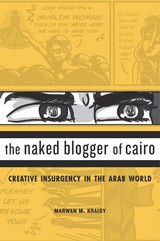
A Times Higher Education Book of the Year
Uprisings spread like wildfire across the Arab world from 2010 to 2012, fueled by a desire for popular sovereignty. In Tunisia, Egypt, Syria, and elsewhere, protesters flooded the streets and the media, voicing dissent through slogans, graffiti, puppetry, videos, and satire that called for the overthrow of dictators and the regimes that sustained them. Investigating what drives people to risk everything to express themselves in rebellious art, The Naked Blogger of Cairo uncovers the creative insurgency at the heart of the Arab uprisings.
“A deep dive into the cultural politics of the Arab uprisings…Kraidy’s sharp insights and rich descriptions of a new Arab generation’s irrepressible creative urges will amply reward the effort. Reading Kraidy’s accounts of the politically charted cultural gambits of wired Arab youth rekindles some of the seemingly lost spirit of the early days of the Arab uprisings and offers hope for the future.”
—Marc Lynch, Washington Post
“The Naked Blogger of Cairo is a superb and important work not just for scholars but for anyone who cares about the relationships between art, the body, and revolution.”
—Hans Rollman, PopMatters
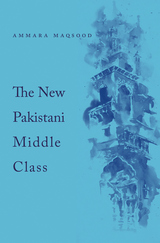
Pakistan’s presence in the outside world is dominated by images of religious extremism and violence. These images—and the narratives that interpret them—inform events in the international realm, but they also twist back around to shape local class politics. In The New Pakistani Middle Class, Ammara Maqsood focuses on life in contemporary Lahore, where she unravels these narratives to show how central they are for understanding competition and the quest for identity among middle-class groups.
Lahore’s traditional middle class has asserted its position in the socioeconomic hierarchy by wielding significant social capital and dominating the politics and economics of urban life. For this traditional middle class, a Muslim identity is about being modern, global, and on the same footing as the West. Recently, however, a more visibly religious, upwardly mobile social group has struggled to distinguish itself against this backdrop of conventional middle-class modernity, by embracing Islamic culture and values. The religious sensibilities of this new middle-class group are often portrayed as Saudi-inspired and Wahhabi.
Through a focus on religious study gatherings and also on consumption in middle-class circles—ranging from the choice of religious music and home décor to debit cards and the cut of a woman’s burkha—The New Pakistani Middle Class untangles current trends in piety that both aspire toward, and contest, prevailing ideas of modernity. Maqsood probes how the politics of modernity meets the practices of piety in the struggle among different middle-class groups for social recognition and legitimacy.

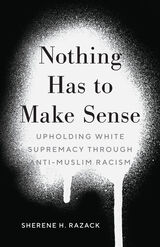
How Western nations have consolidated their whiteness through the figure of the Muslim in the post-9/11 world
While much has been written about post-9/11 anti-Muslim racism (often termed Islamophobia), insufficient attention has been given to how anti-Muslim racism operates through law and is a vital part of law’s protection of whiteness. This book fills this gap while also providing a unique new global perspective on white supremacy. Sherene H. Razack, a leading critical race and feminist scholar, takes an innovative approach by situating law within media discourses and historical and contemporary realities. We may think of law as logical, but, argues Razack, its logic breaks down when the subject is Muslim.
Tracing how white subjects and majority-white nations in the post-9/11 era have consolidated their whiteness through the figure of the Muslim, Razack examines four sites of anti-Muslim racism: efforts by American evangelical Christians to ban Islam in the school curriculum; Canadian and European bans on Muslim women’s clothing; racial science and the sentencing of Muslims as terrorists; and American national memory of the torture of Muslims during wars and occupations. Arguing that nothing has to make sense when the subject is Muslim, she maintains that these legal and cultural sites reveal the dread, phobia, hysteria, and desire that mark the encounter between Muslims and the West.
Through the prism of racism, Nothing Has to Make Sense argues that the figure of the Muslim reveals a world divided between the deserving and the disposable, where people of European origin are the former and all others are confined in various ways to regimes of disposability. Emerging from critical race theory, and bridging with Islamophobia/critical religious studies, it demonstrates that anti-Muslim racism is a revelatory window into the operation of white supremacy as a global force.
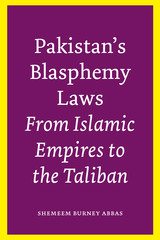
Under the guise of Islamic law, the prophet Muhammad’s Islam, and the Qur’an, states such as Pakistan, Afghanistan, Egypt, Saudi Arabia, and Bangladesh are using blasphemy laws to suppress freedom of speech. Yet the Prophet never tried or executed anyone for blasphemy, nor does the Qur’an authorize the practice. Asserting that blasphemy laws are neither Islamic nor Qur‘anic, Shemeem Burney Abbas traces the evolution of these laws from the Islamic empires that followed the death of the Prophet Muhammad to the present-day Taliban. Her pathfinding study on the shari’a and gender demonstrates that Pakistan’s blasphemy laws are the inventions of a military state that manipulates discourse in the name of Islam to exclude minorities, women, free thinkers, and even children from the rights of citizenship.
Abbas herself was persecuted under Pakistan’s blasphemy laws, so she writes from both personal experience and years of scholarly study. Her analysis exposes the questionable motives behind Pakistan’s blasphemy laws, which were resurrected during General Zia-ul-Haq’s regime of 1977–1988—motives that encompassed gaining geopolitical control of the region, including Afghanistan, in order to weaken the Soviet Union. Abbas argues that these laws created a state-sponsored “infidel” ideology that now affects global security as militant groups such as the Taliban justify violence against all “infidels” who do not subscribe to their interpretation of Islam. She builds a strong case for the suspension of Pakistan’s blasphemy laws and for a return to the Prophet’s peaceful vision of social justice.
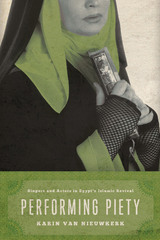
In the 1980s, Egypt witnessed a growing revival of religiosity among large sectors of the population, including artists. Many pious stars retired from art, “repented” from “sinful” activities, and dedicated themselves to worship, preaching, and charity. Their public conversions were influential in spreading piety to the Egyptian upper class during the 1990s, which in turn enabled the development of pious markets for leisure and art, thus facilitating the return of artists as veiled actresses or religiously committed performers.
Revisiting the story she began in “A Trade like Any Other”: Female Singers and Dancers in Egypt, Karin van Nieuwkerk draws on extensive fieldwork among performers to offer a unique history of the religious revival in Egypt through the lens of the performing arts. She highlights the narratives of celebrities who retired in the 1980s and early 1990s, including their spiritual journeys and their influence on the “pietization” of their fans, among whom are the wealthy, relatively secular, strata of Egyptian society. Van Nieuwkerk then turns to the emergence of a polemic public sphere in which secularists and Islamists debated Islam, art, and gender in the 1990s. Finally, she analyzes the Islamist project of “art with a mission” and the development of Islamic aesthetics, questioning whether the outcome has been to Islamize popular art or rather to popularize Islam. The result is an intimate thirty-year history of two spheres that have tremendous importance for Egypt—art production and piety.
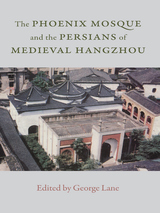
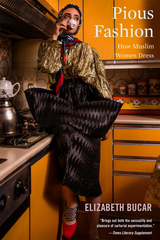
Who says you can’t be pious and fashionable? Throughout the Muslim world, women have found creative ways of expressing their personality through the way they dress. Headscarves can be modest or bold, while brand-name clothing and accessories are part of a multimillion-dollar ready-to-wear industry that caters to pious fashion from head to toe. In this lively snapshot, Liz Bucar takes us to Iran, Turkey, and Indonesia and finds a dynamic world of fashion, faith, and style.
“Brings out both the sensuality and pleasure of sartorial experimentation.”
—Times Literary Supplement
“I defy anyone not to be beguiled by [Bucar’s] generous-hearted yet penetrating observation of pious fashion in Indonesia, Turkey and Iran… Bucar uses interviews with consumers, designers, retailers and journalists…to examine the presumptions that modest dressing can’t be fashionable, and fashion can’t be faithful.”
—Times Higher Education
“Bucar disabuses readers of any preconceived ideas that women who adhere to an aesthetic of modesty are unfashionable or frumpy.”
—Robin Givhan, Washington Post
“A smart, eye-opening guide to the creative sartorial practices of young Muslim women… Bucar’s lively narrative illuminates fashion choices, moral aspirations, and social struggles that will unsettle those who prefer to stereotype than inform themselves about women’s everyday lives in the fast-changing, diverse societies that constitute the Muslim world.”
—Lila Abu-Lughod, author of Do Muslim Women Need Saving?
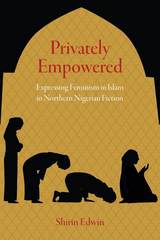
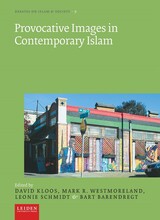
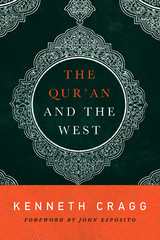
Kenneth Cragg (1913–2012) was one of the West's most gifted interpreters of Islam. In this deeply insightful, classic work of Qur’anic studies, he argues that the West must put aside a "spiritual imperialism" that draws on Western prescripts alien to Muslims and "learn to come within" Islam. Only then can a conversation begin that can relieve the misunderstandings and suspicion that has grown between Islam and the West in the years since 9/11.
Cragg’s close and thoughtful readings are as timely and relevant now as they were when The Qur'an and the West was originally published. With skill and nuance, he illuminates the difficulty that ensues through the Scripture's contradictory teachings on Islam's manifestation in the world—teachings that have brought about a crisis for modern Muslims living in both the West and the westernizing worlds, where a Muslim's obligation to Islamicize is met with anxiety and distrust.
The Qur'an and the West offers a means of study that reaches for a deeper knowledge of the Qur'an, engendering a new understanding of its holy teachings and opening a means for a fruitful discourse.
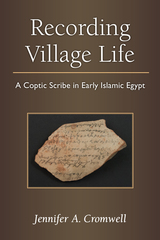
Papyrological analysis of Aristophanes’ documents, within the context of the textual record of the village, shows a new and divergent scribal practice that reflects broader trends among his contemporaries: Aristophanes was part of a larger, national system of administrative changes, enacted by the country’s Arab rulers in order to better control administrative practices and fiscal policies within the country. Yet Aristophanes’ dossier shows him not just as an administrator, revealing details about his life, his role in the community, and the elite networks within which he operated. This unique perspective provides new insights into both the micro-history of an individual’s experience of eighth-century Theban village life, and its reflection in the macro social, economic, and political trends in Egypt at this time.
This book will prove valuable to scholars of late antique studies, papyrology, philology, early Islamic history, social and economic history, and Egyptology.

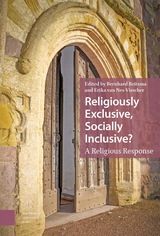
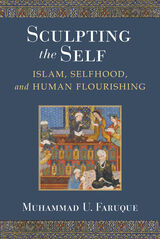
Sculpting the Self addresses “what it means to be human” in a secular, post-Enlightenment world by exploring notions of self and subjectivity in Islamic and non-Islamic philosophical and mystical thought. Alongside detailed analyses of three major Islamic thinkers (Mullā Ṣadrā, Shāh Walī Allāh, and Muhammad Iqbal), this study also situates their writings on selfhood within the wider constellation of related discussions in late modern and contemporary thought, engaging the seminal theoretical insights on the self by William James, Jean-Paul Sartre, and Michel Foucault. This allows the book to develop its inquiry within a spectrum theory of selfhood, incorporating bio-physiological, socio-cultural, and ethico-spiritual modes of discourse and meaning-construction. Weaving together insights from several disciplines such as religious studies, philosophy, anthropology, critical theory, and neuroscience, and arguing against views that narrowly restrict the self to a set of cognitive functions and abilities, this study proposes a multidimensional account of the self that offers new options for addressing central issues in the contemporary world, including spirituality, human flourishing, and meaning in life.
This is the first book-length treatment of selfhood in Islamic thought that draws on a wealth of primary source texts in Arabic, Persian, Urdu, Greek, and others. Muhammad U. Faruque’s interdisciplinary approach makes a significant contribution in the growing field of cross-cultural dialogue, as it opens up the way for engaging premodern and modern Islamic sources from a contemporary perspective by going beyond the exegesis of historical materials. He initiates a critical conversation between new insights into human nature as developed in neuroscience and modern philosophical literature and millennia-old Islamic perspectives on the self, consciousness, and human flourishing as developed in Islamic philosophical, mystical, and literary traditions.
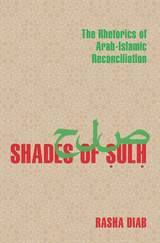
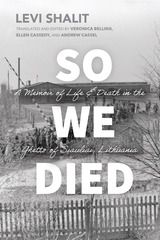
A powerful eyewitness account of the Shavl ghetto in Nazi-occupied Lithuania

The State of Islam tells the story of Pakistan through the lens of the Cold War, and more recently the War on Terror, to shed light on the domestic and international processes behind the global rise of militant Islam.
Unlike existing scholarship on nationalism, Islam and the state in Pakistan, which tends to privilege events in a narrowly-defined ‘political’ realm, Saadia Toor highlights the significance of cultural politics in Pakistan from its origins to the contemporary period. This extra dimension allows Toor to explain how the struggle between Marxists and liberal nationalists was influenced and eventually engulfed by the agenda of the religious right.
Timely and unique, this book is a must for anyone who wants to understand the roots of modern Pakistan and the likely outcome of current power struggles in the country.
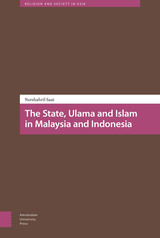
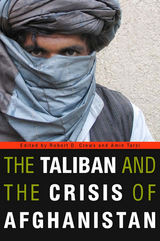
The Taliban remain one of the most elusive forces in modern history. A ragtag collection of clerics and madrasa students, this obscure movement emerged out of the rubble of the Cold War to shock the world with their draconian Islamic order. The Taliban refused to surrender their vision even when confronted by the United States after September 11, 2001. Reinventing themselves as part of a broad insurgency that destabilized Afghanistan, they pledged to drive out the Americans, NATO, and their allies and restore their "Islamic Emirate."
The Taliban and the Crisis of Afghanistan explores the paradox at the center of this challenging phenomenon: how has a seemingly anachronistic band of religious zealots managed to retain a tenacious foothold in the struggle for Afghanistan's future? Grounding their analysis in a deep understanding of the country's past, leading scholars of Afghan history, politics, society, and culture show how the Taliban was less an attempt to revive a medieval theocracy than a dynamic, complex, and adaptive force rooted in the history of Afghanistan and shaped by modern international politics. Shunning journalistic accounts of its conspiratorial origins, the essays investigate broader questions relating to the character of the Taliban, its evolution over time, and its capacity to affect the future of the region.
Offering an invaluable guide to "what went wrong" with the American reconstruction project in Afghanistan, this book accounts for the persistence of a powerful and enigmatic movement while simultaneously mapping Afghanistan's enduring political crisis.
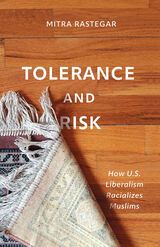
How apparently positive representations of Muslims in U.S. media cast Muslims as a racial population
Portrayals of Muslims as the beneficiaries of liberal values have contributed to the racialization of Muslims as a risky population since the September 11 attacks. These discourses, which hold up some Muslims as worthy of tolerance or sympathy, reinforce an unstable good Muslim/bad Muslim binary where any Muslim might be moved from one side to the other. In Tolerance and Risk, Mitra Rastegar explores these discourses as a component of the racialization of Muslims—where Muslims are portrayed as a highly diverse population that nevertheless is seen to contain within it a threat that requires constant vigilance.
Tolerance and Risk brings together several case studies to examine the interrelation of representations of Muslims abroad and in the United States. These include human-interest stories and opinion polls of Muslim Americans, media representations of education activist Malala Yousafzai, LGBTQ activist discourses, local New York controversies surrounding Muslim-led public projects, and social media discourses of the Syrian refugee crisis. Tolerance and Risk demonstrates how representations of tolerable or sympathetic Muslims produce them as a population with distinct characteristics, capacities, and risks, and circulate standards by which the trustworthiness or threat of individual Muslims must be assessed.
Tolerance and Risk examines the ways that discourses of liberal rights, including feminist and LGBTQ rights discourses, are mobilized to racialize Muslims as uncivilized, even as they garner sympathy and identification with some Muslims.

Political Islam, to be distinguished from Islam as a culture or a religion, and from Islamic Fundamentalism, is an increasingly important feature of the western political scene. The ideologies of Political Islam reflect the fact that some of their adherents live and work within a Western socio-political context.
Although Political Islam has been widely written about in Muslim countries, very little has been published the West, and this book attempts to redress that imbalance.
With a range of outstanding contributors that includes academics and human rights advocates this book tackles the diversity of Islamist thinking and practice in various Western countries and explores their transnational connections in both East and West.
The book analyses developments in Islamist thinking and activities, and their connections to the latest global political and economic trends, and discusses future evolutions of the ideology and its manifestations.

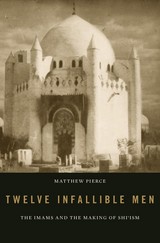
A millennium ago, Baghdad was the capital of one of history’s greatest civilizations. A new Islamic era was under way. Yet despite the profound cultural achievements, many Muslims felt their society had gone astray. Shiˀa Muslims challenged the dominant narrative of Islamic success with stories of loss. Faithful Muslims have long debated whether Sunni caliphs or Shiˀa imams were the true heirs of the Prophet Muhammad. More influential has been the way Muslim communities remembered those disputes through stories that influenced how to think and feel about them, Matthew Pierce argues.
Twelve Infallible Men focuses on the role of narratives of the imams in the development of a distinct Shiˀa identity. During the tenth century, at a critical juncture in Islamic history, a group of scholars began assembling definitive works containing accounts of the twelve imams’ lives. These collective biographies constructed a sacred history, portraying the imams as strong, beautiful, learned, and pious. Miracles surrounded their birth, and they became miracle workers in turn, but were nevertheless betrayed and martyred by enemies.
These biographies inspired and entertained, but more importantly they offered a meaningful narrative of history for Muslims who revered the imams. The accounts invoked shared memories and shaped communal responses and ritual practices of grieving. Mourning the imams’ tragic fates helped nascent Shiˀa communities resist the pressure to forget their story. The biographies of the imams became a focal point of cultural memory, inspiring Shiˀa religious imagination for centuries to come.
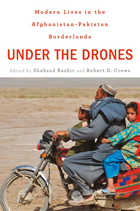
In the West, media coverage of Afghanistan and Pakistan is framed by military and political concerns, resulting in a simplistic picture of ageless barbarity, terrorist safe havens, and peoples in need of either punishment or salvation. Under the Drones looks beyond this limiting view to investigate real people on the ground, and to analyze the political, social, and economic forces that shape their lives. Understanding the complexity of life along the 1,600-mile border between Afghanistan and Pakistan can help America and its European allies realign their priorities in the region to address genuine problems, rather than fabricated ones.
This volume explodes Western misunderstandings by revealing a land that abounds with human agency, perpetual innovation, and vibrant complexity. Through the work of historians and social scientists, the thirteen essays here explore the real and imagined presence of the Taliban; the animated sociopolitical identities expressed through traditions like Pakistani truck decoration; Sufism’s ambivalent position as an alternative to militancy; the long and contradictory history of Afghan media; and the simultaneous brutality and potential that heroin brings to women in the area.
Moving past shifting conceptions of security, the authors expose the West’s prevailing perspective on the region as strategic, targeted, and alarmingly dehumanizing. Under the Drones is an essential antidote to contemporary media coverage and military concerns.
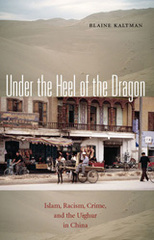
The Turkic Muslims known as the Uighur have long faced social and economic disadvantages in China because of their minority status. Under the Heel of the Dragon: Islam, Racism, Crime, and the Uighur in China offers a unique insight into current conflicts resulting from the rise of Islamic fundamentalism and the Chinese government’s oppression of religious minorities, issues that have heightened the degree of polarization between the Uighur and the dominant Chinese ethnic group, the Han.
Author Blaine Kaltman’s study is based on in-depth interviews that he conducted in Chinese without the aid of an interpreter or the knowledge of the Chinese government. These riveting conversations expose the thoughts of a wide socioeconomic spectrum of Han and Uighur, revealing their mutual prejudices. The Uighur believe that the Han discriminate against them in almost every aspect of their lives, and this perception of racism motivates Uighur prejudice against the Han.
Kaltman reports that criminal activity by Uighur is directed against their perceived oppressors, the Han Chinese. Uighur also resist Han authority by flouting the laws—such as tax and licensing regulations or prohibitions on the use or sale of hashish—that they consider to be imposed on them by an alien regime. Under the Heel of the Dragon offers a unique insight into a misunderstood world and a detailed explanation of the cultural perceptions that drive these misconceptions.
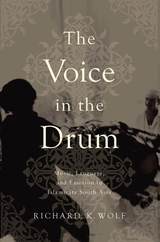
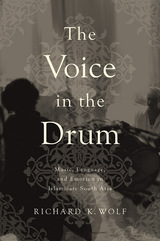
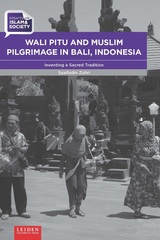
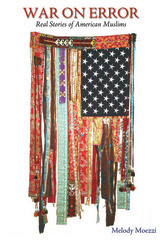
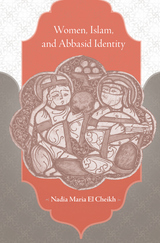
When the Abbasids overthrew the Umayyad dynasty in 750 CE, an important element in legitimizing their newly won authority involved defining themselves in the eyes of their Islamic subjects. Nadia Maria El Cheikh shows that ideas about women were central to the process by which the Abbasid caliphate, which ushered in Islam’s Golden Age, achieved self-definition.
In most medieval Islamic cultures, Arab Islam stood in opposition to jahl, or the state of impurity and corruption that existed prior to Islam’s founding. Over time, the concept of jahl evolved into a more general term describing a condition of ignorance and barbarism—as well as a condition specifically associated in Abbasid discourse with women. Concepts of womanhood and gender became a major organizing principle for articulating Muslim identity. Groups whose beliefs and behaviors were perceived by the Abbasids as a threat—not only the jahilis who lived before the prophet Muhammad but peoples living beyond the borders of their empire, such as the Byzantines, and heretics who defied the strictures of their rule, such as the Qaramita—were represented in Abbasid texts through gendered metaphors and concepts of sexual difference. These in turn influenced how women were viewed, and thus contributed to the historical construction of Muslim women’s identity.
Through its investigation of how gender and sexuality were used to articulate cultural differences and formulate identities in Abbasid systems of power and thought, Women, Islam, and Abbasid Identity demonstrates the importance of women to the writing of early Islamic history.
READERS
Browse our collection.
PUBLISHERS
See BiblioVault's publisher services.
STUDENT SERVICES
Files for college accessibility offices.
UChicago Accessibility Resources
home | accessibility | search | about | contact us
BiblioVault ® 2001 - 2024
The University of Chicago Press



